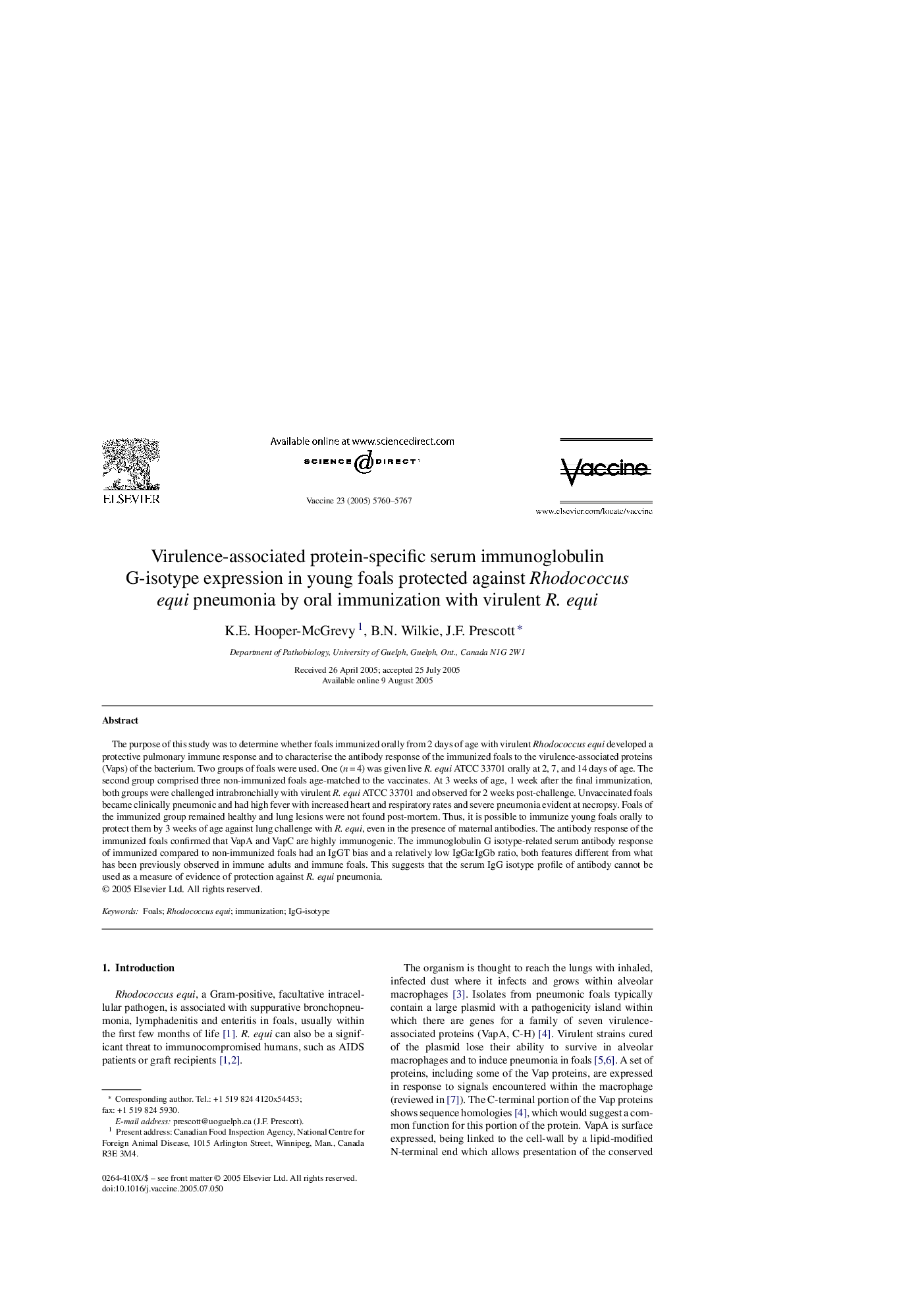| Article ID | Journal | Published Year | Pages | File Type |
|---|---|---|---|---|
| 2409815 | Vaccine | 2005 | 8 Pages |
The purpose of this study was to determine whether foals immunized orally from 2 days of age with virulent Rhodococcus equi developed a protective pulmonary immune response and to characterise the antibody response of the immunized foals to the virulence-associated proteins (Vaps) of the bacterium. Two groups of foals were used. One (n = 4) was given live R. equi ATCC 33701 orally at 2, 7, and 14 days of age. The second group comprised three non-immunized foals age-matched to the vaccinates. At 3 weeks of age, 1 week after the final immunization, both groups were challenged intrabronchially with virulent R. equi ATCC 33701 and observed for 2 weeks post-challenge. Unvaccinated foals became clinically pneumonic and had high fever with increased heart and respiratory rates and severe pneumonia evident at necropsy. Foals of the immunized group remained healthy and lung lesions were not found post-mortem. Thus, it is possible to immunize young foals orally to protect them by 3 weeks of age against lung challenge with R. equi, even in the presence of maternal antibodies. The antibody response of the immunized foals confirmed that VapA and VapC are highly immunogenic. The immunoglobulin G isotype-related serum antibody response of immunized compared to non-immunized foals had an IgGT bias and a relatively low IgGa:IgGb ratio, both features different from what has been previously observed in immune adults and immune foals. This suggests that the serum IgG isotype profile of antibody cannot be used as a measure of evidence of protection against R. equi pneumonia.
